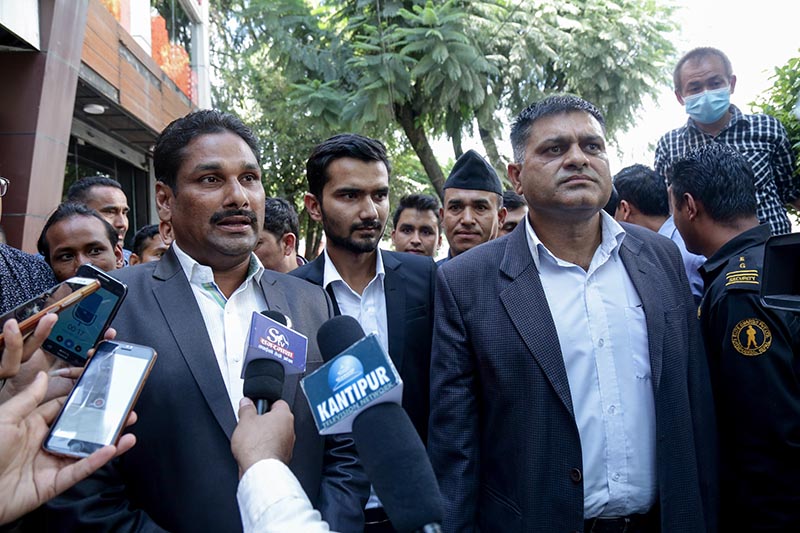Black economy thrives as under invoicing in import rampant
Kathmandu, September 5
The government’s recent inspection at some of the outlets selling international brands like Nike, Puma, Store One and Bentley, among others has amazed their costumers as the market price of goods had been marked up by nearly 10 times than that disclosed at the customs points.
The price disclosed by the importers of such popular brands at the customs point is far lower than the market price, which is due to the ‘under invoicing’ in import. Under invoicing in import has been hurting the government’s revenue and simultaneously creating various risks in the economy.
Under invoicing in import not only hurts customs tariff, it also affects the collection of inland tax like value added tax (VAT) and income tax. It also mars the level playing field as under invoiced goods can be sold at more competitive rates compared to goods imported by genuine importers, according to Revenue Secretary Shishir Kumar Dhungana.
The Department of Customs (DoC) updates the reference price of goods imported in the country every year based on a market survey that it conducts each year, to improve the customs valuation system, however, the recent market monitoring reveals that under invoicing in import is still rampant.
“The government needs to control the chances of under invoicing to minimise the parallel economy,” said senior economist Keshav Acharya. “Hundi, for example, has been affecting remittance inflow in the country.” Agents of Nepali traders tap the remittances in the labour destinations and use the money to pay the exporters in the respective destinations for the goods through hundi. The exporters in turn issue bills which disclose a lower rate than the actual price of the goods.
A study carried out by Nepal Rastra Bank shows that remittance inflow from South Korea is dismal as the agents of the traders tap the money there and divert it to invest abroad and for payment of under invoiced goods and families of the migrant workers get equal quantum of local currency in Nepal that is provided to the agents of Nepali traders in their job destinations. The country often faces shortage of dollar in the market as traders collect such cash from the market to send the payment of under invoiced goods.
Under invoicing of goods also hurts the domestic production base as their products cannot compete with under invoiced goods. Traders also use precious metals as payment of under invoiced goods. Gold smuggled to India through Nepal could be used for the under invoicing of goods. As per officials at Ministry of Finance, import of silver had increased exponentially about two years back, and the silver was suspected to have been smuggled to India for the payment of under invoiced goods.
As traders have been coming up with various ways for under invoicing in import, the DoC has various provisions to avoid under invoicing. According to DoC, the customs officer can carry out valuation on transaction value, verifying the valuation of goods of similar characteristics and the customs is also authorised to purchase the goods from the importer at the customs point at five per cent additional value than the import bill.
However, the country has not been able to effectively deal with the rampant under invoicing, which may further distort the production base, raise income inequality and cripple the economy in the long run.






